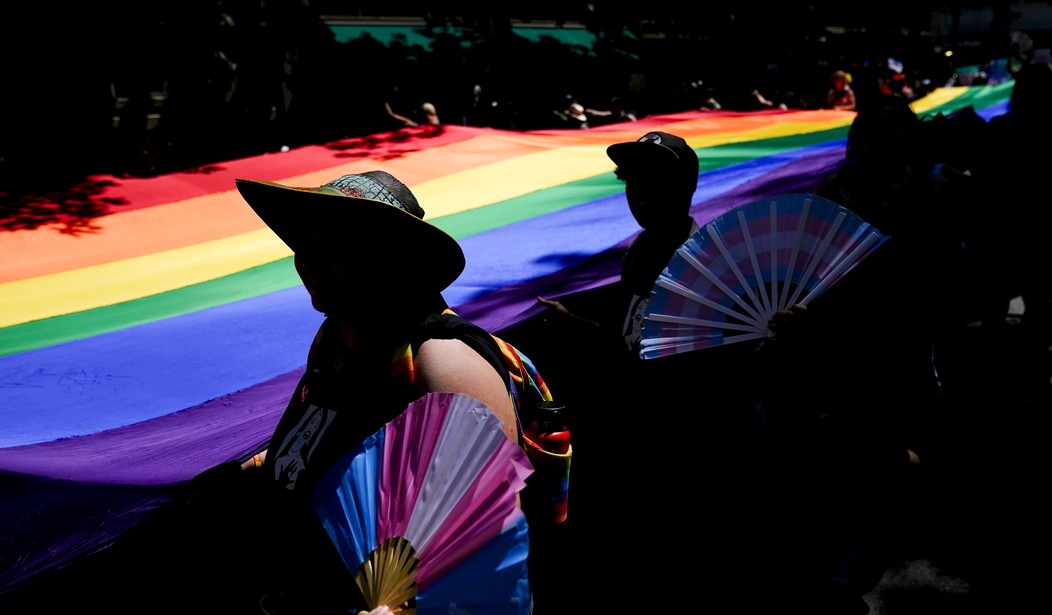The decision on the part of the Harrison Board of Education to punish five female athletes for refusing to compete with a biological male has failed – at least for now. A West Virginia judge reinstated the middle school girls track and field athletes after they were banned for protesting the inclusion of a male athlete who suffers from gender dysphoria.
The ruling comes amidst growing outrage and legal battles over the state’s controversial “Save Women’s Sports Act,” which is aimed at protecting female athletes from having to compete against males.
The judge slapped the education board with an injunction, prohibiting them from punishing students for expressing their views:
Judge Thomas A. Bedell issued a preliminary injunction that prevents the Harrison Board of Education and its schools from penalizing student-athletes for their speech.
The school board denied allegations of retaliation against the students, and instead asserted the students were allowed to protest without hindrance and with full awareness and permission from coaches and the principal.
"Those students, like all of the other students on the team, however, were subject to a team rule that any player who scratches in an event cannot participate in that event at the next track meet," the board said in a statement. "This neutral, school-specific rule was in place before the students’ protests and has nothing to do with those protests in any way. Other than not being permitted to participate in the same event in which they scratched at the next track meet, the students have competed in track meets and events following their protests without restriction."
The preliminary injunction is a step toward protecting the free speech of the athletes, as well as others who might speak out against those trying to push males into female spaces.
The conflict began when the girls refused to compete against a male student in the shot put event. The board of education responded by using a rule to ban them from participating in future sporting events. The rule supposedly prevents athletes from continuing to compete in sporting events if they choose to forfeit a match.
West Virginia Attorney General Patrick Morrisey, who filed an amicus brief with the court in the students’ favor, lauded the decision, saying that the athletes “didn’t disrupt anything when they protested,” and that “They should be commended, not punished.”
This story garnered national attention, reflecting the broader national debate over the inclusion of biological males in female sports.
Much of the case centers on the state’s “Save Women’s Sports Act” which was recently overturned in court after being challenged by the American Civil Liberties Union (ACLU).
The “Save Women’s Sports Act” was enacted about three years ago before being overturned on Tuesday by the court. However, state officials vowed to continue fighting for the law.
The ban in West Virginia was originally signed into law by Gov. Jim Justice in 2021, and introduced as the “Save Women’s Sports Act.” It required that any official or unofficial school-sanctioned event involving athletics determine each athlete’s participation in the event “based on the athlete’s biological sex as indicated on the athlete’s original birth certificate issued at the time of birth,” effectively barring transgender students from participating.
The ruling from the 4th U.S. Circuit Court of Appeals said the law cannot lawfully be applied to a 13-year-old girl who has been taking puberty-blocking medication and publicly identified as a girl since she was in the third grade.
In February 2023, the court blocked the state’s bid to kick Becky Pepper Jackson off of her middle school track and field team if the law were enforced.
Judge Toby Heytens wrote that offering her a “choice” between not participating in sports and participating only on boys teams “is no real choice at all.”
“The defendants cannot expect that B.P.J. will countermand her social transition, her medical treatment, and all the work she has done with her schools, teachers, and coaches for nearly half her life by introducing herself to teammates, coaches, and even opponents as a boy,” Heytens wrote.
In this case, the story had a positive conclusion. However, the battle to protect female spaces will continue in the courts and in other areas of society.














